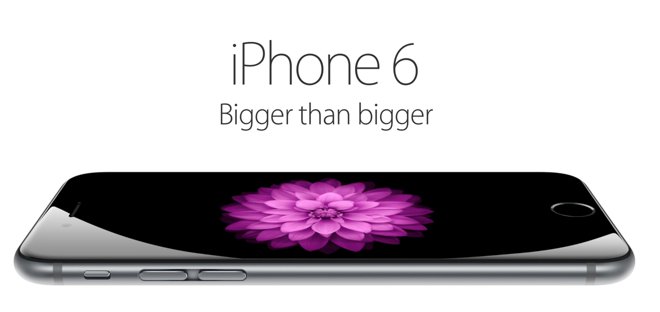Virtually everywhere in the world that research firm Kantar Worldpanel ComTech tracks smartphone market data, Apple saw marketshare gains, thanks to the popularity of its latest flagship iPhone 6 and iPhone 6 Plus handsets.

Kantar's latest sales data through the end of November 2014, published on Wednesday, found that the iPhone 6 and iPhone 6 Plus led to gains for Apple in every single market tracked, except Japan.
Perhaps hurt greatest by Apple's success was rival Samsung, which saw its market share fall in both the U.S. and Europe. Google's Android platform also saw its share drop in the U.S. and most markets in Europe.
For example, in the U.S., the iPhone accounted for 47.4 percent of sales, according to Kantar. That was a 4.3 percentage point increase from the same period tracked by the firm in 2013.
Kantar estimates that the iPhone 6 alone accounted for 19 percent of total American smartphone sales. Of all iPhone models, the company projects AT&T made up 57 percent of sales.
In Europe's biggest markets --Â Britain, Germany, France, Italy and Spain --Â Android fell 3.2 percentage points year over year in the face of the iPhone 6 and iPhone 6 Plus launch. In particular, Great Britain saw Android's market share fall 6.7 percentage points, while Apple surged to 42.5 percent of U.K. sales.
"The longer the new iPhone models are on the market the more their appeal will extend beyond Apple's loyal customers. For now customer switching from Android to iOS remains stable at 18 percent," said Dominic Sunnebo, strategic insight director at Kantar Worldpanel ComTech Europe.
And in China, Apple's market share grew an estimated 1.1 percentage points, giving the iPhone an 18.1 percent of the market, according to Kantar.
As for Japan, the only market where Kantar found Apple didn't grow its market share, the iPhone was hurt by a difficult year over year comparison. That's because in 2013, Apple debuted NTT DoCoMo as a carrier partner, boosting sales significantly.
Overall smartphone penetration reached an estimated 58 percent in the U.S., and 65 percent across Europe's biggest countries. Among holdouts, 47 percent of feature phone owners in the U.S. and 35 percent in Europe said they still aren't planning to get a smartphone.
"While die-hard feature phone owners state they are not planning to buy a smartphone in the next 12 months, they might not have a choice as vendors continue to transition their portfolio away from feature phones to smartphones," said Carolina Milanesi, chief of research at Kantar Worldpanel ComTech.

-xl-s.jpg)
